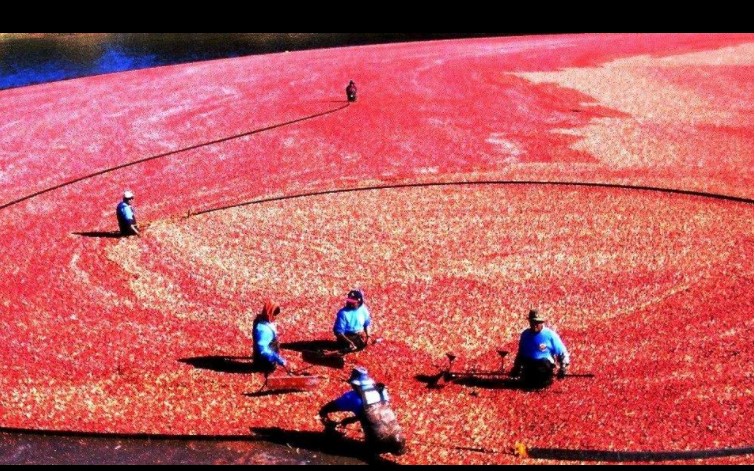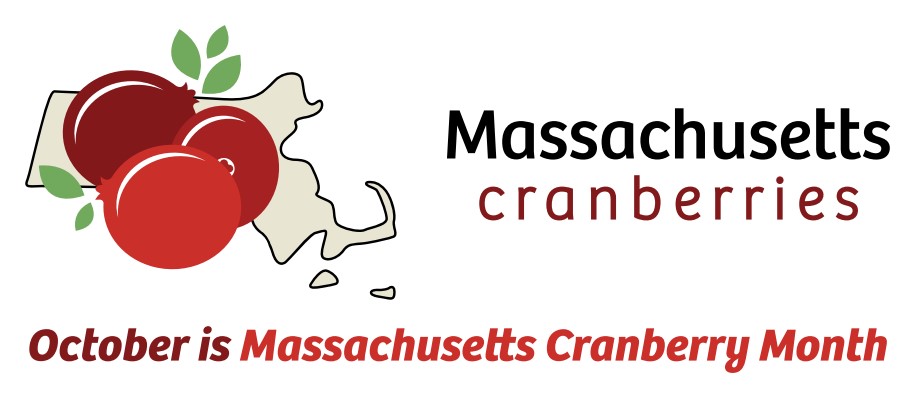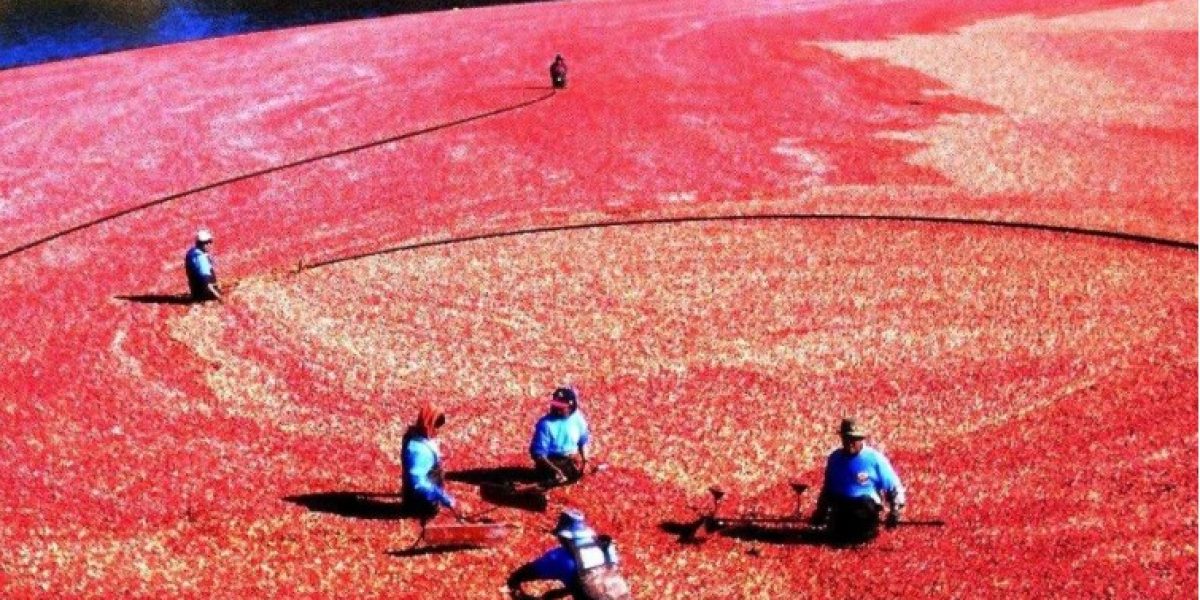
WICKED LOCAL.com – Gov. Charlie Baker today declared October as “Massachusetts Cranberry Month,” continuing the commonwealth’s support of cranberry farmers and encouraging Massachusetts residents to purchase locally produced cranberry products, according to a press release.
“The cranberry industry is a significant driver for the Massachusetts economy, and the Baker-Polito Administration is proud to build on our longstanding support of the industry at a time when many producers are adjusting to the impacts of ongoing drought conditions,” said Energy and Environmental Affairs Secretary Kathleen Theoharides. “The production of cranberries provides enormous environmental benefits to the commonwealth and our local growers are true stewards of their land, incorporating the latest in technology and equipment to harvest their fruit in ways that conserve water and protects natural resources.”
Massachusetts is the oldest cranberry growing region in the country. Today, there are approximately 13,300 acres of commercial cranberry bogs in the state, primarily in Plymouth, Bristol, and Barnstable counties. In 2019, the total value of utilized Massachusetts cranberry production was approximately $64.8 million. Cranberries represent the top commercial crop grown in the commonwealth, producing nearly 23 percent of the nation’s cranberry supply.
In August 2020, the Administration announced $7.75 million in funding to support infrastructure upgrades, including the design, construction, retrofitting and outfitting of enhanced laboratory space, at the UMass Cranberry Station located in Wareham. The funding will be used by the Cranberry Station to modernize and expand its research facilities, improve the environmental profile of the facility, and provide the research tools needed to support vigorous research programs in cranberry water, pest, and nutrient management. The Station is a vital outreach and research center charged with the mission of maintaining and enhancing the economic viability of the Massachusetts cranberry industry.
Massachusetts’ cranberry industry, through crop production, processing and manufacturing, is a major sector of the state’s agriculture economy, and increasing the efficiency of water use in cranberry production is key to conserving water, while minimizing off-target movement of nutrients and pesticides will help to preserve water quality and ensuring the sustainability of cranberry production in the commonwealth.
“The cranberry is a unique fruit, native to Massachusetts, and has become synonymous with Thanksgiving Day celebrations across the country thanks to its role in our nation’s history,” said MDAR Commissioner John Lebeaux. “Taking place from late September to early November, the cranberry harvest season coincides with the fall foliage season, providing a double dose of visual splendor and making October the perfect month to celebrate.”

“Although our growers are nurturing the native perennial cranberry vines the whole year through, we are honored that the commonwealth has recognized our industry in its most identifiable harvest month, October,” said Brian Wick, executive director of the Cape Cod Cranberry Growers’ Association, serving growers from all of Massachusetts. “This is the pinnacle of the growing season. The bogs are alive with activity while our growers are rewarded for their hard work with the hope of another growing season coming to fruition.”
Following recommendations from the Administration’s COVID-19 Command Center’s Food Security Task Force, which promotes ongoing efforts to ensure that individuals and families throughout the commonwealth have access to healthy, local food, the Administration announced a new $36 million Food Security Infrastructure Grant Program to to address urgent food insecurity for Massachusetts residents as a result of the COVID-19 pandemic. Since July 2020, through three funding rounds, the Administration has awarded more than $11.7 million to support over 90 projects to increase food security in the commonwealth, including four awards to Massachusetts cranberry growers.
“Cranberry agriculture is not only a vital driver of Massachusetts’ economy, but also an important part of the Commonwealth’s unique cultural identity,” said Senator Michael J. Rodrigues, D-Westport, chair of the Senate Committee on Ways and Means. “I applaud the Baker-Polito Administration’s continued efforts to support our hardworking cranberry growers and the cranberry industry.”
“Cranberry growers are the backbone of the Southeast region’s agricultural sector,” said Dean of the Massachusetts Senate Marc Pacheco, D-Taunton. “With the holiday season rapidly approaching, I’m pleased we are taking this opportunity to celebrate the local cranberry farmers and declare October Massachusetts Cranberry Month here in the commonwealth.”
“Cranberries and cranberry growers have been and will continue to be an important part of our regional culture and economy here in Massachusetts, and I am proud of the state support local farms have received in recent years,” said state Rep. Bill Straus, D-Mattapoisett, co-chair of the Cranberry Station Board of Oversight.
“The designation of October as Massachusetts Cranberry Month is great news for the growers in the 2nd Plymouth District, home to the most actively farmed acres of cranberry bogs in the commonwealth,” said state Rep. Susan Gifford, R-Wareham. “I have had the honor of hosting both Gov. Baker and Lt. Gov. Polito for harvest events at some of our local farms and very much appreciate their continued commitment to support the cranberry industry and its importance to our economy and the environment.”
In October 2019, the Administration announced $991,837 to 21 cranberry growers for bog renovation projects under MDAR’s Massachusetts Cranberry Bog Renovation Enhancement Grant Program to help renovate existing cranberry bogs, providing higher yields and more efficient methods of cranberry production for participating growers.
In June 2017, the Massachusetts Cranberry Revitalization Task Force released its final report with recommendations to preserve and strengthen Massachusetts’ cranberry industry. The Task Force, composed of 18 government officials and stakeholders within the cranberry industry, was created by the Legislature in July 2015 to examine the status of the industry and the complex challenges ahead, and to develop a multi-pronged action plan geared toward stabilizing and revitalizing the cranberry industry.



